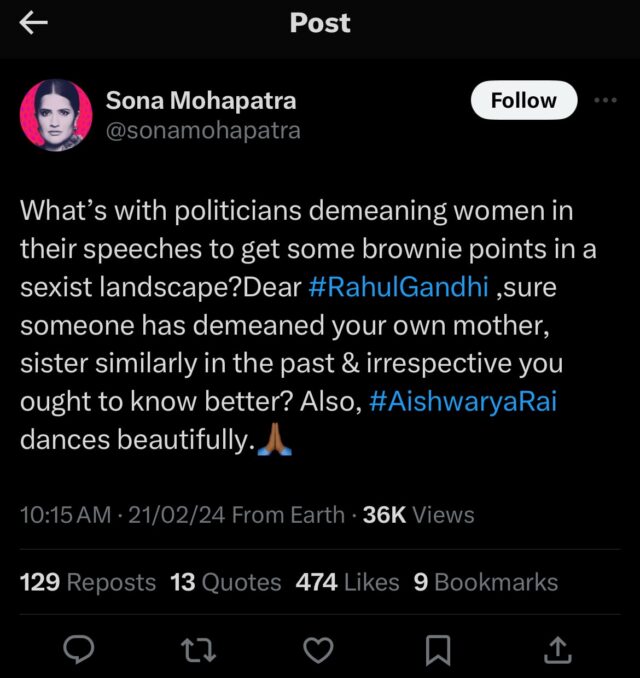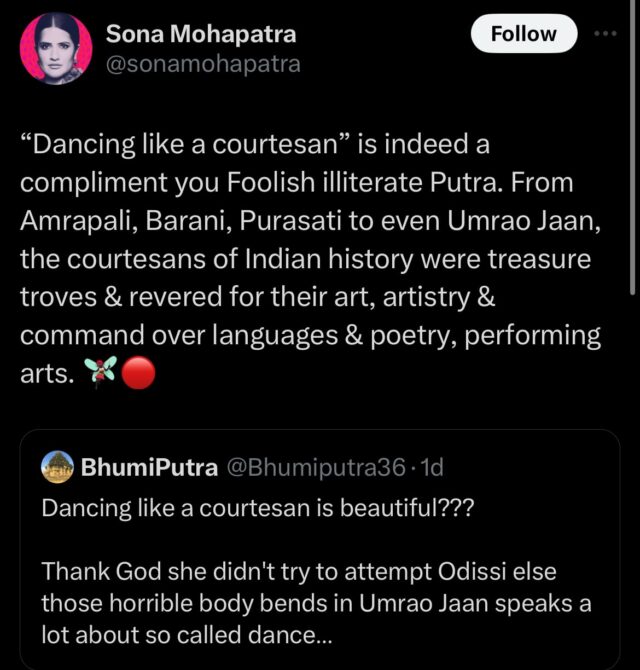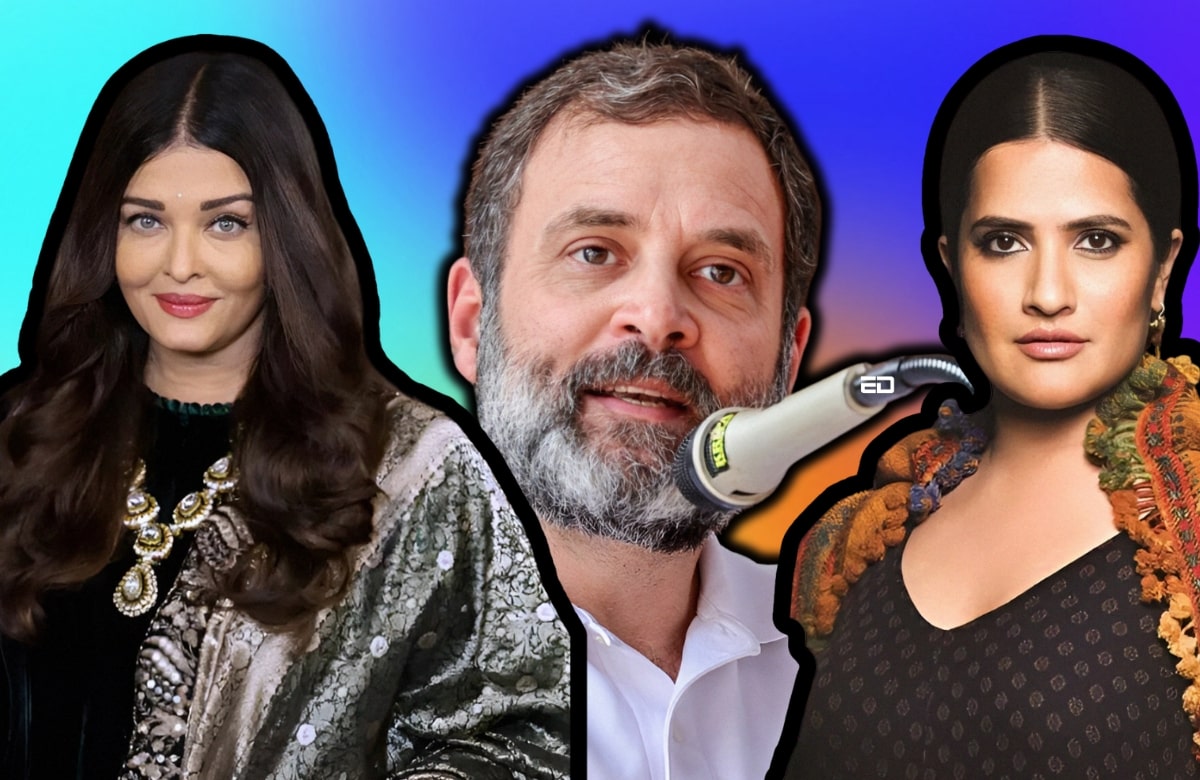In a recent political speech, Congress leader Rahul Gandhi drew criticism for his mention of actress Aishwarya Rai, a move that singer Sona Mohapatra has vehemently opposed. The incident has sparked a conversation about the treatment of women in public discourse, particularly in the context of political rhetoric.
What Did Rahul Gandhi Say?
Rahul Gandhi’s remarks, in which he referenced Aishwarya Rai attending the Ram Temple consecration ceremony, have been viewed as inappropriate and demeaning by many. Sona Mohapatra, known for her outspoken views on societal issues, took to social media to express her disapproval.
What Happened Next?
In a series of tweets, Mohapatra questioned the need for politicians to resort to demeaning women in their speeches to score political points, especially in a society already plagued by sexism.
She called out Gandhi for his remarks, reminding him of the importance of respecting women, regardless of their background or profession. Mohapatra’s defense of Aishwarya Rai highlights the broader issue of gender equality and respect for women in public discourse.

Furthermore, Mohapatra addressed a derogatory comment made by a social media user regarding Aishwarya Rai’s profession as an actress and dancer.
She emphasized the historical significance and artistic prowess of courtesans in Indian culture, challenging the derogatory connotations associated with the term. Mohapatra’s response serves as a reminder of the need to appreciate and respect diverse forms of art and expression, without resorting to judgment or prejudice.
Read More: Is Rahul Gandhi Changing His Image With Bharat Jodo Yatra 1 &2?

Rahul Gandhi’s remarks not only drew criticism for their insensitivity but also reignited discussions about the objectification of women in politics and the media. By bringing Aishwarya Rai into his political speech, Gandhi inadvertently perpetuated a culture of sexism and misogyny that continues to marginalize women in public spaces.
Moreover, Gandhi’s comments reflect a larger pattern of politicians using women as pawns in their political games, disregarding their agency and autonomy. This exploitation of women for political gain is not only unethical but also reinforces harmful stereotypes and undermines efforts towards gender equality.
In conclusion, Sona Mohapatra’s response to Rahul Gandhi’s remarks serves as a powerful reminder of the importance of respecting women and challenging sexism in all its forms. It highlights the need for a more inclusive and respectful public discourse that uplifts women rather than objectifying or demeaning them.
As we continue to navigate the complexities of gender dynamics in society, it is imperative that we stand in solidarity with women and advocate for their rights and dignity.
Image Credits: Google Images
Feature image designed by Saudamini Seth
Sources: Times of India, India Today, Mint
Find the blogger: Pragya Damani
This post is tagged under: Sona Mohapatra, Rahul Gandhi, Aishwarya Rai, Indian politics, sexism, women empowerment, Bollywood, societal norms, cultural appreciation, Odissi dance, courtesan dance, Indian history, social media, misogyny, political discourse, gender equality
Disclaimer: We do not hold any right, copyright over any of the images used, these have been taken from Google. In case of credits or removal, the owner may kindly mail us.
Other Recommendations:
Criteria Bars Rahul Gandhi, Priyanka Gandhi From Getting Invited For Ram Mandir Inauguration
































